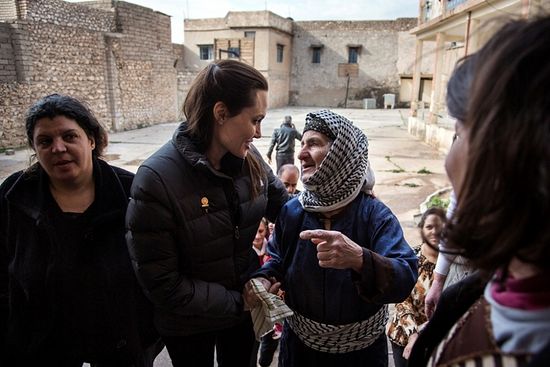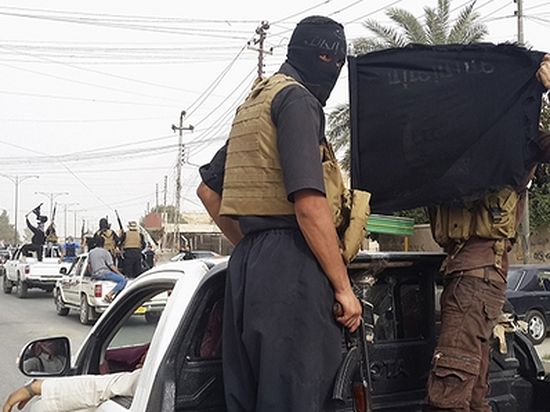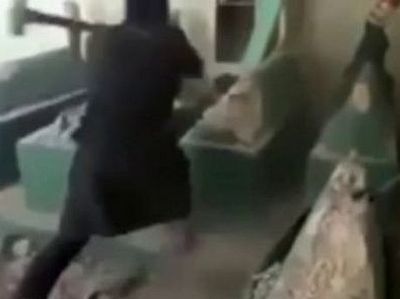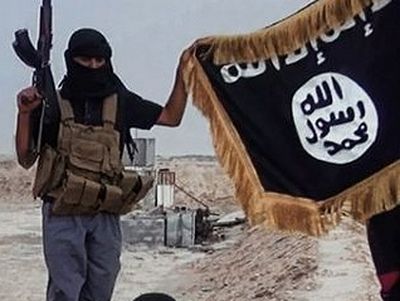June 9, 2015
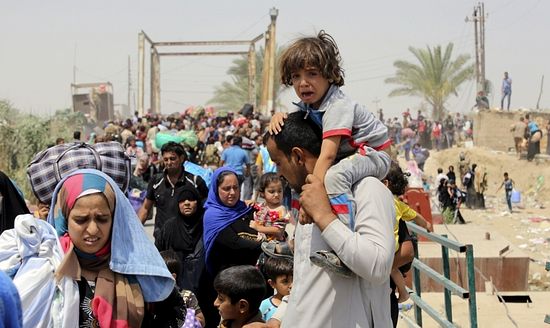 (PHOTO: REUTERS/STRINGER) A displaced Sunni man fleeing the violence in Ramadi carries a crying child on his shoulders, on the outskirts of Baghdad, May 24, 2015. Iraqi forces recaptured territory from advancing Islamic State militants near the recently-fallen city of Ramadi on Sunday, while in Syria the government said the Islamists had killed hundreds of people since capturing the town of Palmyra.
(PHOTO: REUTERS/STRINGER) A displaced Sunni man fleeing the violence in Ramadi carries a crying child on his shoulders, on the outskirts of Baghdad, May 24, 2015. Iraqi forces recaptured territory from advancing Islamic State militants near the recently-fallen city of Ramadi on Sunday, while in Syria the government said the Islamists had killed hundreds of people since capturing the town of Palmyra.
A Christian family in the ancient city of Nineveh is reportedly defending the 2,700 year-old tomb of the Jewish prophet Nahum, as the armies of terror group ISIS advance in the region and are now only 10 miles outside.
"When the last Jewish people in Al Qosh left, they asked my grandfather to watch over the tomb, to keep it safe. I don't know much more than that," said Asir Salaam Shajaa, an Assyrian Christian.
"Nahum is not our prophet, but he is a prophet, so we must respect that. He's a prophet, it is simple."
Haaretz reported that Al Qosh, the city built over the ancient Nineveh, is a treasure trove of history, containing both the early beginnings of Christianity and the Assyrian empire, along with its Hebrew heritage.
Nahum the prophet is known for predicting the fall of Nineveh in the seventh century BCE, and his remains are believed to be kept at the tomb of "Nahum the Elkoshite" in the city.
Shajaa revealed that generations of his family have been taking care of the tomb, located in one of the last synagogues still standing in Iraq. His family had promised the Jewish residents of Al Qosh more than 60 years ago that they would protect and preserve the Hebrew site. The Jewish people were forced to flee in the early 1950s after government policies sought to purge Iraq from their presence.
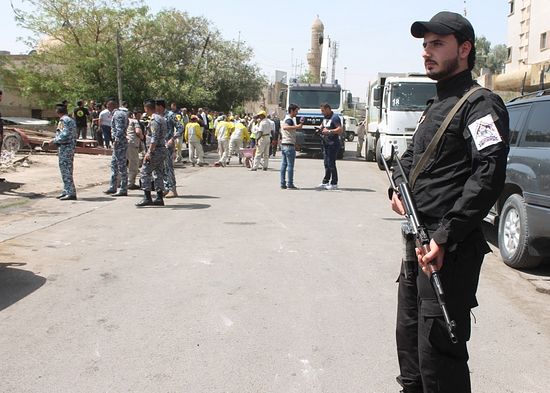 An Iraqi Christian fighter, a member of Babylon Christian Battalion, stands guard near the site of car bomb attack in Baghdad, May 5, 2015.
An Iraqi Christian fighter, a member of Babylon Christian Battalion, stands guard near the site of car bomb attack in Baghdad, May 5, 2015.
The ancient tomb was reportedly visited by thousands of worshipers each year before the exodus.
Shajaa noted that the beige hand-laid walls of the old synagogue are crumbling, but he continues to take care of the tomb with his family, and allows visitor to come pay their respects.
"No one can decide what to do with the place. There were people who came a few years ago, some wealthy Jewish people who wanted to rebuild the fallen walls with the same stones," the Christian man said.
"The government didn't like that though, they didn't want them to use the same materials because they think it isn't safe. But then Islamic State came and we are close to the fighting here, so nothing will happen now."
Shajaa said he's confident that ISIS will not conquer the city, despite its recent conquests of other Iraqi cities. Still, he noted that the crisis has affected pilgrimages, with very few Jewish pilgrims daring to venture to the tomb.
"I'm not sure how long my family will continue to stay in Iraq, we want to leave, most of the Christians want to leave," he added. "My brother says he will stay though, if my family gets to leave Iraq my brother and his children will look after the tomb. It will stay in the family, God willing."
ISIS' conquest of Ramadi back in May was its most significant territorial victory in Iraq since the U.S. and a broad coalition of international forces began launching airstrikes against the terror group last year.
The fall of the city prompted questions about whether the U.S. is losing the war in Iraq and Syria, though President Barack Obama has denied those claims.
U.S. Deputy Secretary of State Antony Blinken said earlier this week that over 10,000 ISIS fighters have been killed since the military campaign began nine months ago.
"We have seen a lot of losses within Daesh [ISIS] since the start of this campaign, more than 10,000," Blinken said. "It will end up having an impact."
